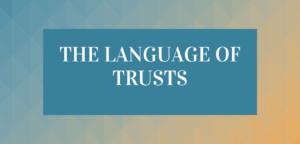IRS Is a Lot More Open to Compromise These Days
It used to be that if you owed a large debt to the IRS you didn’t have a great chance of catching a break. Even though the IRS has always been able to compromise, at least a little, the tax agency has never been really eager to do so. Some people might not even be aware that this was a possibility, but it is. It’s called an offer in compromise and it gives taxpayers with overwhelming debt the chance to pay off that debt for less than the total amount owed.
During the 10 years between 2000 and 2010 the IRS accepted somewhere in the neighborhood of 25-30 percent of these petitions on average, but never reached the 40 percent threshold. However, recently, especially during the last three years the IRS seems to have become a lot more charitable with offers in compromise. That’s good news for taxpayers with large amounts of tax debt.
In the 2012, the IRS accepted 24,000, or 38 percent, of these offers and that number jumped to 31,000, or 42 percent in 2013. In 2014, the number dipped slightly to 27,000 accepted offers, or 40 percent. Typically the IRS does not accept OICs if the agency feels that the taxpayer has the means to pay off the entire debt. However, every situation is different, so if you are considering making an offer in compromise to the IRS to settle your tax debt, then you might want to speak with an experienced tax accountant from GROCO first, in order to weigh your options. You can contact us by clicking here or by calling 1-877-CPA-2006.
The Language of Trusts
The Language of Trusts Many professions and disciplines have their own vocabulary. As an example, think about the terminology used in medicine and law. Often this vocabulary defines complex ideas, yet just as often “terms of art” can be defined with relative ease to a layperson. Such is the case with much of the language…
Tax Planning Considerations
Tax Planning Considerations First Year Tax Issues Upon Becoming a US Resident If a married taxpayer wishes to file a joint return, both spouses must be residents at the end of the year and elect to be treated as U.S. residents for the entire year. If the taxpayer is taxed as a U.S. resident for…
Approaches to Valuing Cost Sharing Buy-Ins
Approaches to Valuing Cost Sharing Buy-Ins Buy-Ins: Introduction Buy-in payments are often associated with a cost sharing arrangement (CSA) transaction. See § 1.482-7 for regulations regarding cost sharing arrangements between related parties. Participants should receive arm’s length compensation (a “buy-in”) for “pre-existing” intangibles that are contributed to a CSA. The buy-in should be treated as…
IRS Says Its Auditors May Routinely Ask for Effective Tax Rate Reconciliation Workpapers
IRS Says Its Auditors May Routinely Ask for Effective Tax Rate Reconciliation Workpapers Chief Counsel Notice 2007-015 A Chief Counsel Notice concludes that effective tax rate reconciliation workpapers are neither tax accrual workpapers nor audit workpapers. As such, they aren’t included in the documents the IRS will not routinely request during an audit. Effective tax…

